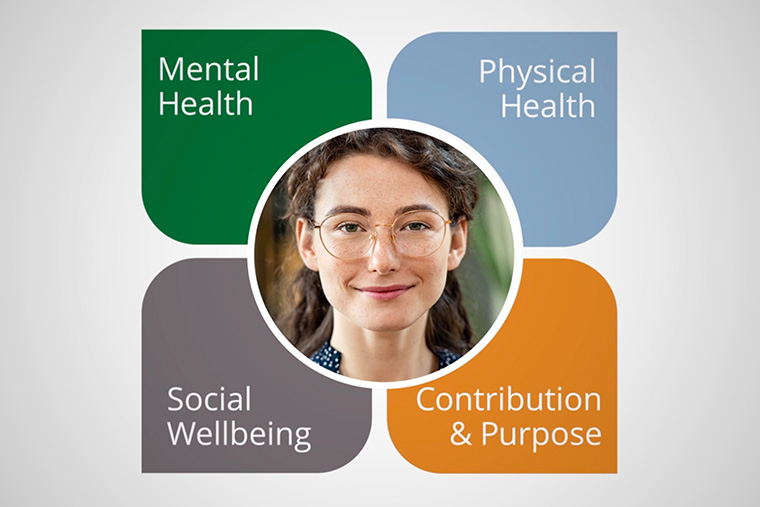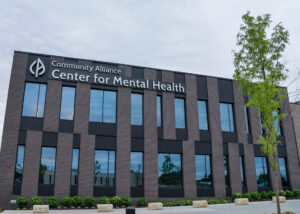The Core Principle of Person-Centered Care: Seeing The Person as a Human Being: Worthy of Respect, Empathy, Dignity, and Having a Voice In Their Care

Mental Health Care that Promotes Respect, Empathy, and Dignity
Consider this scenario:
Jessica, a 22-year-old waitress, knew she needed help, but didn’t have the slightest idea about how to get mental health care. Feeling increasingly depressed over the past six months, she finally summoned the energy and the courage to address it. But call after call, she hit a dead end: “We aren’t able to see new patients for at least 8 weeks” or “Sorry, your insurance is limited” were common refrains at each office she called. Growing more concerned and anxious each day, she went to her local hospital’s emergency room. The ER checked her out medically, gave her a prescription to help with anxiety and released her along with a list of providers to contact for follow-up care, many of whom she had contacted previously. Now unemployed, due to her repeated absences, Jessica has a huge ER bill, and little hope in finding a pathway to long-term relief from whatever was going on with her.
Sadly, there are countless people like Jessica who face what seem like insurmountable barriers to accessing mental health care, the result of which can lead to unemployment and a decline in physical health along with even more serious mental health concerns.
At Community Alliance, we understand that people with mental health challenges may need assistance in a variety of areas, not just psychiatric care. Looking at the whole person —their life circumstances, their values, their healthcare preferences, their fears and concerns— is part of our process, and is a philosophy known as Person-Centered Care. For example, Jessica is not only burdened with her illness, but she also lost her job – an important consideration when coordinating and integrating clinical care and support services.
“What is Person-Centered Care?” you might ask. The practice of Person-Centered Care is a concept that originated in the late 1960s, but the idea and definition has been evolving over the last decade. For Community Alliance, it means placing the person and their family in the center of care, focusing on ALL their needs — physical, mental, social, emotional and spiritual — and developing a trusted partnership where the person is treated with dignity and their mental health care preferences are valued and honored.
The emphasis is placed on the relationship, not just the tools of treatment. “The biggest impact we can make on those we serve is the helping, holistic relationship we build with them,” said Jennifer Muckey, Quality Improvement Manager at Community Alliance.
Our Person-Centered Care is a thoughtful, organized approach where information is easily shared with everyone participating in a person’s journey to recovery. This eliminates the client’s feeling that they need to “chase the system down a never-ending path,” where they end up frustrated and tired with no resolution or positive outcome in sight.
Jessica’s experience in navigating the healthcare system was exceptionally challenging and left her feeling hopeless. Finding a doctor, making an appointment, filling out complex medical forms, asking the right questions, dealing with insurance companies, managing transportation — all these tasks can be quite burdensome and emotionally draining. It can often cause vulnerable people to delay seeking care, or worse, not seeking help at all.
The aim of Community Alliance’s Care Coordinators is to remove barriers and lift burdens that keep people from accessing mental health care, and to make the path to recovery as smooth and seamless as possible. Having an advocate who can empathize and walk you through the complex and often confusing healthcare system can make all the difference. Studies show that Person-Centered Care results in improved care processes and mental health outcomes.
“Our Care Coordinators understand all the moving parts involved in the healthcare process,” said Muckey. “Person-Centered Care is an integral part of our culture, and it has led to stronger relationships, and an overall greater level of healing and wellness among those we serve.”
Why Choose Community Alliance for Person-Centered Care in Omaha?
When someone calls or arrives at our door, we simply ask: “How can I help you TODAY?”. Whether an individual needs something simple like help with transportation, or is facing a serious mental health crisis, we are committed to meeting each person where they are.
Since our beginning more than 40 years ago, our methodology has involved treating the whole person, not just offering a menu of mental health services. Our approach is no different today – it is Person-Centered.
When people have medical tasks and dictates thrust upon them, it makes them feel like an object, not a person with feelings and thoughts. They feel a loss of control. With this in mind, we strive to empower people by having them take an active role in their treatment plan. Instead of being “passive receivers” of care, individuals are encouraged to help build their own mental health care program. Whether it’s psychiatric counseling and diabetes testing, or housing and family support, at Community Alliance, each person can pursue a program they believe will be most beneficial for their recovery.
Our integrated Person-Centered Care approach focuses on all aspects of a person’s recovery – Mental Health, Physical Health, Social Wellbeing, and Contribution and Purpose. We work closely with each individual we serve to tailor a plan that meets their current needs and considers their future and evolving needs as their healing progresses.
The benefits of Person-Centered Care speak for themselves. According to both research and success stories from Community Alliance, individuals have experienced the following:
- more self-confidence
- a stronger sense of identity
- healthier interpersonal relationships
- improved physical health
- a more defined purpose for their life
- increased gratitude
- a stronger trust in their healthcare provider
- a sense of hope
- increased job opportunities
- a greater sense of appreciation for their community
The positive results from our whole-person approach are life-changing, and it puts each person in the center – at the heart – of their care, the way it should be.
Help is Within Reach
At Community Alliance, we offer a full range of integrated health services including primary and psychiatric care, mental health and substance use counseling, rehabilitation and employment services, supportive housing, community, family and peer supports and more.



